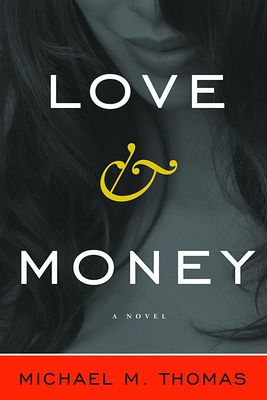 Since starting The Business Fiction Blog, I have made it a point to visit Powell’s City of Books on Burnside in Portland at least once a month, in order to search for Business Fiction Thrillers. Powell’s stacks their Thrillers in aisles 320 and 321, which consists of 48 four-foot shelves. Several very prolific authors dominate.
Since starting The Business Fiction Blog, I have made it a point to visit Powell’s City of Books on Burnside in Portland at least once a month, in order to search for Business Fiction Thrillers. Powell’s stacks their Thrillers in aisles 320 and 321, which consists of 48 four-foot shelves. Several very prolific authors dominate.
Robert Ludlum has four shelves, Tom Clancy – two and a half, John LeCarre and Ken Follett each have two. Michael Crichton has a few scattered in his shelf, (Disclosure, Mainframe); Joseph Finder (Paranoia, Company Man) and Steven W. Frey (Takeover, Day Trader) each have half a shelf. Many of the Thrillers are in the sub-genres of spies, military, politics and so on. Business Fiction Thrillers are in short supply.
It was on one of these monthly excursions that I discovered Love & Money. After I was halfway into it, I concluded that the novel was either improperly categorized by Powell’s reviewers, or perhaps it was dumped into the section by a customer who simply forgot where it was originally located.
Michael M. Thomas’ Love & Money is very much about show business, the marriage business and the legal business. As explained on the back cover, the media empire at risk in this novel–worth a billion dollars and thousands of jobs–all rests on the back of a TV star, Constance Grange.
Essentially what’s happening in Love & Money is that Grange, like many stars, promotes a large range of products. She is “America’s Mom.” Her character is very wholesome and relatable–everyone loves her. Connie’s business contract is somewhat dependent on her marriage contract. Her value as a brand is tied to her role as a wife and mother. The contract includes a clause promising that she “will not engage in acts of moral turpitude or commit any act or thing that will tend to degrade her reputation.” So, of course, the first thing she does in the novel is have an affair.
Connie’s husband, the cuckold Clifford, was once a up-and-coming director, but has now found himself on “the permanent Hollywood shit list,” after failing to gracefully handle criticisms of his last film – which was an expensive flop.
Love & Money is split into two parts. In part one, everyone engages in risky and behavior and questionable decision making that jeopardizes their respective financial situations, i.e. having an affair, confiding in your employer about your affair and playing private detective to capture video evidence of said affair. You get the idea.
In part two, Clifford’s lawyer, Jekyll, manages to manipulate Clifford into agreeing toe be the “Doe” in a lawsuit. Jekyll wants to bring to challenge a change in the divorce laws in their home state, which (very theoretically) could enable Clifford to extract a huge settlement from Constance or her employer.
In order to buy into the plot, the reader needs to believe that a) Jekyll, a highly successful divorce lawyer, would forgo hundreds of hours of lucrative billing for the “privilege” of potentially arguing a case before the Supreme Court, b) that Clifford would allow himself to be Doe in a high profile case, notwithstanding he is paranoid over the possibility that he (and Constance) might be “outed” by a reporter, and c) that Clifford, who harbors very strong impulses of revenge against Connie, and is desperately seeking financing to get back into the movie game, would ignore the potential of a proposed $100 million-plus settlement from Constance’s employer.
If you are able to continue to suspend your disbelief, not withstanding the plausibility issues identified above, and plough through to the end, you may achieve some level of satisfaction, which will be largely due to the author’s wit, writing ability and wide range of knowledge. I could not detect much of the suspense that one expects in a “thriller” and I found all the characters lacking in passion. They simply do not appear to care that much about what is happening around them.
In summary, Love & Money is a well-written, erudite, “drawing room comedy” that is much more reflective of Oscar Wilde’s The Importance of Being Earnest than a current Business Thriller.